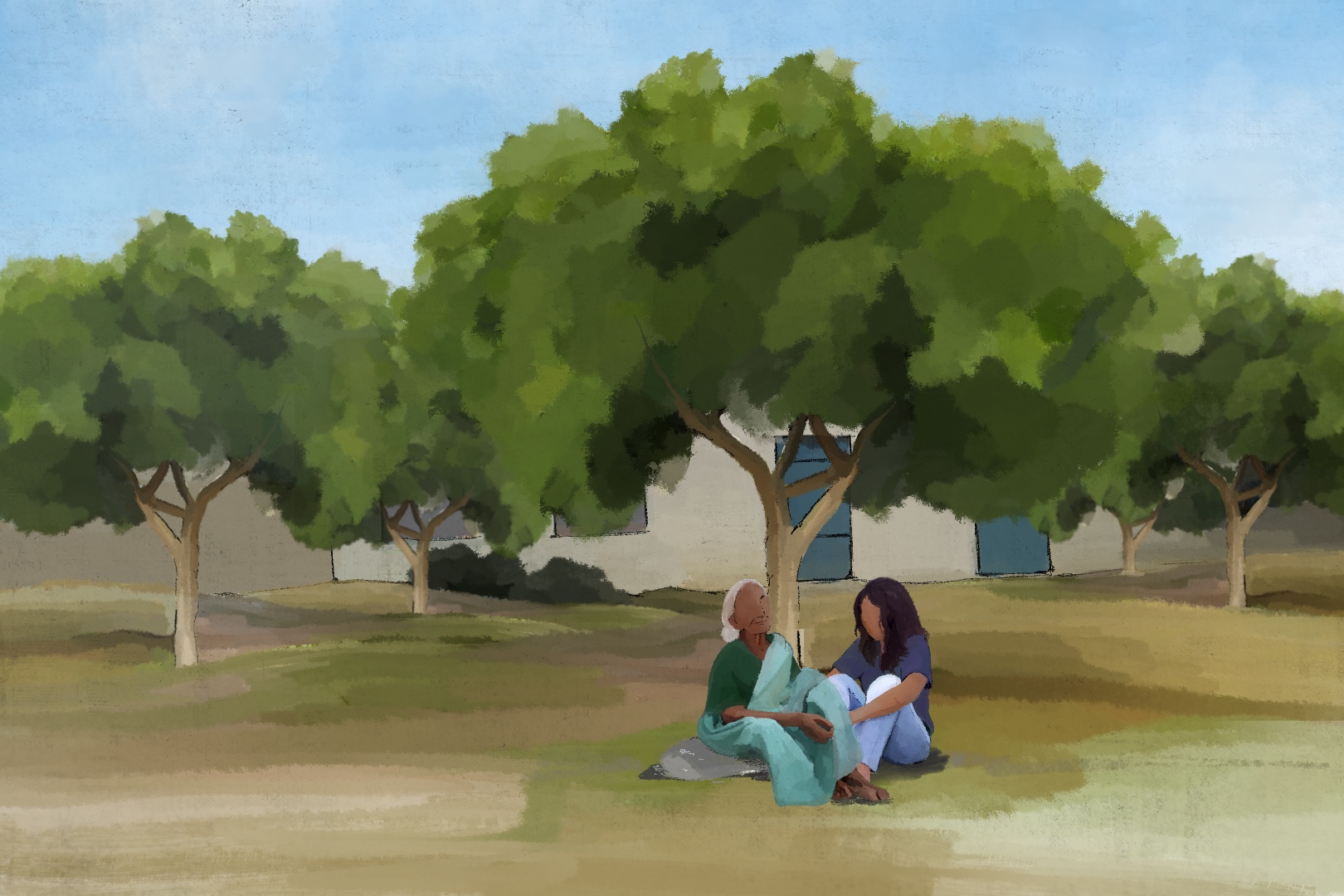[ad_1]
On a sunny afternoon in February 2021, I sat with my nice aunt Yellamma underneath the shade of a neem tree.
We had been in Ramavaram, a small city within the southern Indian state of Telangana, and the early summer season warmth was already within the air.
I had not seen my father’s aunt since I used to be 14, however now, a decade later, she welcomed me into her arms.
Rising up, my household moved often because of my father’s authorities job. I might see my family members solely yearly once we visited our hometown of Dornakal in japanese Telangana and at weddings or funerals. However every time I noticed my family members, I might pester them with questions on their lives, attempting to grasp my roots.
That day was no totally different, and Yellamma and I chatted for hours close to the home the place our household had gathered for the memorial of a distant relative.
Yellamma, who was 75, wore a darkish inexperienced sari and her hair wound into a decent bun. She answered my questions in her stern voice, her gaze intense as she recalled her youthful years and cursed the hardships she had endured.
We’re Madigas – a Dalit neighborhood concentrated within the southern states of India, thought-about “untouchable” by India’s caste system. The four-tier Chatur Varna system consists of Brahmins (clergymen), adopted by Kshatriyas (warriors and rulers), Vaishyas (merchants) and Shudras (labourers). Dalits exist as a fifth class, outdoors of caste society.
In India, caste, a standing dictated by start, usually stays on the root of the category divide. Whereas schooling has allowed some Dalits to guide comfy lives, many communities like Madigas – historically tasked with making and repairing sneakers, tanning leather-based and clearing away useless animals – nonetheless face the brunt of compelled labour, poverty and discrimination throughout the nation.
Yellamma, like many Madiga girls of her time, labored as a farm labourer. It was a tough lifetime of toiling within the fields, sweeping and doing different menial jobs for a day by day wage.
However there was one other job I used to be interested by, a follow I heard of in passing during which so-called “lower-caste” girls had been required to be moist nurses for “upper-caste” youngsters. How far again did this follow go, I questioned. And did I do know somebody who was as soon as a moist nurse?
“Nanamma [grandmother], have you learnt anybody from our household or neighborhood who used to breast-feed ‘upper-caste’ youngsters?” I requested her.
Yellamma straightened her again and checked out me. “I do know many, beta [child],” she replied. “However why would an informed child such as you wish to dig up the distress of the previous? I assumed children your age solely bury their faces into their telephones.”
However she furrowed her eyebrows and started to inform me about Akkamma*, a Madiga lady she knew in her village of Gundrathimadugu when she was in her early teenagers.
[ad_2]
Source link


